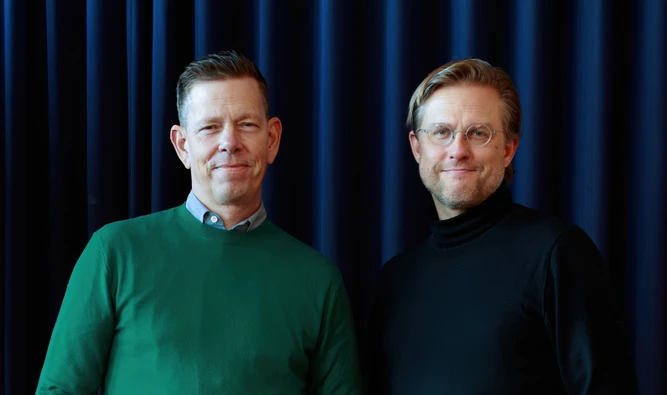News and press releases
News and updates from Comprend.


A sharper digital presence for Precise Biometrics
Launching a new website isn’t just about updating design or refreshing content. When it’s done in the right way, it’s about creating a platform that reflects the business of today, and where they’re going next. That’s exactly what Precise Biometrics set out to do with their new site. And we’re proud to have partnered with them to bring it to life.

Stockholm Exergi's 2024 digital annual and sustainability report
We're excited to announce the launch of Stockholm Exergi's digital annual and sustainability report 2024, built on our Website as a Service (WaaS) platform.

Aura ramps up AI development with Swiftly acquisition
At Comprend, we are excited to share the news of our parent company, Aura’s, strategic acquisition of AI consultancy, Swiftly – a move that strengthens our AI capabilities and opens up new opportunities for our clients. This acquisition enables a stronger AI-driven approach within Aura's network of agencies, fostering innovation and advancing the use of AI both within group and for our clients

Per Bruun appointed as new CEO of Comprend
Leading Stockholm-based marketing and comms agency announces leadership transition.

Dutch companies underperform in social sustainability information and accessibility standards
Thirty of the largest publicly listed Dutch companies were evaluated in Webranking’s annual review, achieving an average score of 45.76, slightly below the European average of 48.4. This marks a small improvement of 1.35 percentage points compared to last year. Dutch companies performed particularly well in key areas such as the homepage, about us section, and financial reporting.

German companies lead in digital innovation communication but face challenges in investor transparency
This year's Webranking results for Germany reveal strong performance from the country’s 60 largest included companies. The average score of 52.5 points surpasses the European average of 48.4 points. The findings underline German companies' commitment to digital corporate communication and their ability to meet stakeholders’ expectations. Despite their strong overall performance, German companies face challenges in investor relations communication and presenting share-related information on their websites. Transparency on financial and strategic risks and dividend-related information especially falls behind stakeholder expectations.

French companies face challenges in investor relations and governance transparency
The results of the 2024-2025 Webranking survey provide a detailed look into how France's largest companies are performing in digital corporate communications. This year's evaluation covered 66 companies, with an average score of 43.2 out of 100. Since this is below the Europe 500 average, the results highlight several key areas where improvements are possible.

Spanish companies excel in financial reporting, but strategy communication needs clarity
The results of the 2024-2025 Webranking by Comprend reveal that Spain's 20 largest companies, based on market capitalisation, set a high standard for corporate website performance. With an average score of 52.07, Spanish companies have surpassed both last year’s average of 49.7 and the Europe 500 average of 48.40. This highlights a sustained commitment to meeting stakeholder expectations, particularly in key areas such as financial reporting and innovation.